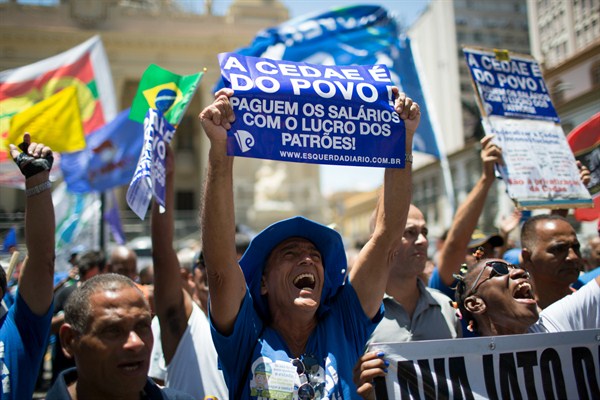RIO DE JANEIRO, Brazil — A resident in Rio de Janeiro’s largest favela, Rocinha, Jose Martins is worried. Earlier this year, Rio’s city council voted to sell the state-owned water and sanitation company, CEDAE, a move that Martins believes puts access to water and sanitation at risk for almost 50,000 residents in Rocinha alone.
“The state has a social obligation, so many of us here pay a symbolic price,” he says. “I don’t imagine that a business will allow people to pay as little. If this happens, people won’t be able to pay. If they can’t pay, the company will cut off their water.”
Martins is not the only one worried about the wider implications of the sale in Rio. In the weeks leading up to the vote, protests broke out on a weekly basis in the city center, stopping only when military police resorted to tear gas and rubber bullets.

